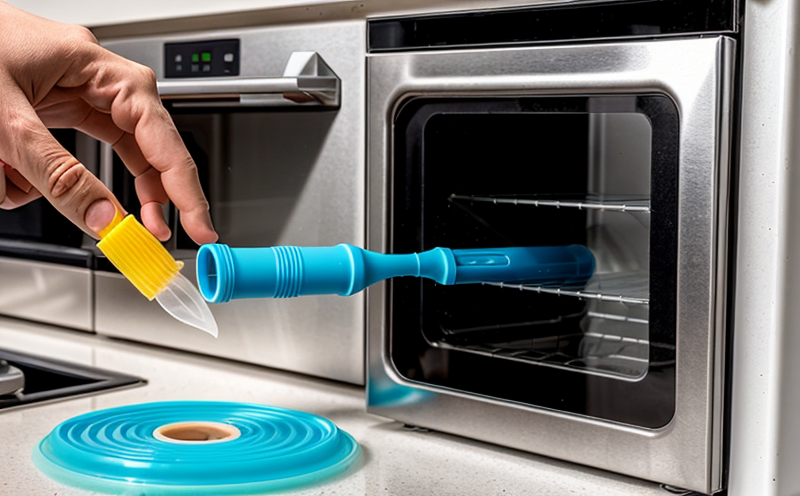ISO 7765 Drop Impact Testing of Household Plastics
The ISO 7765 standard is pivotal in assessing the resistance to impact and durability of household plastics. This test, as specified by International Organization for Standardization (ISO), evaluates how household plastic materials withstand sudden impacts that mimic real-world conditions. Such tests are essential for manufacturers aiming to enhance product safety, improve design robustness, and ensure compliance with regulatory standards.
Impact testing is particularly crucial in the household sector where products like kitchenware, toys, and furniture must withstand daily use without breaking or deforming. The ISO 7765 method involves dropping a specified weight from various heights onto the sample to determine its impact resistance. This process helps identify potential weaknesses in design that could lead to product failure under typical usage conditions.
The test setup typically includes an impact machine capable of delivering precise impacts at different angles and with varying drop weights. Specimens are carefully prepared according to ISO guidelines, ensuring uniformity across samples for accurate comparison. Compliance officers rely on this testing method to ensure that products meet regulatory requirements, thereby protecting consumers from potential hazards.
For R&D engineers, the test provides valuable insights into material properties and can guide product development decisions. By understanding how different materials perform under impact stress, they can innovate more resilient designs. Additionally, procurement teams benefit by using this testing to verify that suppliers meet quality standards, ensuring consistent performance across all batches.
The results of ISO 7765 tests are crucial for manufacturing processes as well. They inform adjustments in production methods and material selections, ultimately leading to safer products. The test outcomes also support market analysis by highlighting trends in product durability and identifying areas for improvement.
In summary, ISO 7765 drop impact testing is a cornerstone of quality assurance in the household plastics industry. It ensures that products are not only functional but also safe and reliable under expected conditions. This standard plays a vital role in maintaining consumer trust and regulatory compliance across various sectors including home goods manufacturing.
Why It Matters
The significance of ISO 7765 drop impact testing extends beyond mere quality assurance; it is integral to ensuring product safety, enhancing consumer satisfaction, and fostering innovation. By adhering to this standard, manufacturers can significantly reduce the risk of product failure due to impacts, which could otherwise lead to accidents or injuries.
Compliance with ISO 7765 not only protects end-users but also shields companies from potential legal liabilities associated with defective products. This is especially important given increasing consumer awareness about product safety and environmental concerns. Meeting these standards can thus serve as a competitive advantage, enhancing brand reputation and fostering customer loyalty.
The test results provide actionable insights that drive continuous improvement in manufacturing processes. By identifying weak points in design or material selection early on, companies can implement targeted improvements, leading to more robust products. This iterative approach ensures that household plastics meet not only current but also future demand trends, aligning with evolving market expectations.
Moreover, ISO 7765 drop impact testing supports broader sustainability goals by promoting the use of high-quality materials and design practices. By ensuring durability, these tests contribute to longer product lifecycles, reducing waste and the environmental footprint associated with frequent replacements. This aligns well with global efforts towards more sustainable production methods.
In conclusion, ISO 7765 drop impact testing is not just a compliance requirement but a strategic tool for enhancing product quality, safety, and sustainability. Its importance cannot be overstated in the household plastics industry where reliability and durability are paramount.
Benefits
- Enhanced Product Safety: Ensures that household plastics can withstand typical impacts without breaking or deforming, reducing risks to consumers.
- Improved Durability: Identifies design flaws and material weaknesses early in the development process, leading to more robust products.
- Regulatory Compliance: Guarantees adherence to international standards, facilitating easier market entry and broader customer trust.
- Innovation Support: Provides valuable data for R&D teams to innovate safer, more reliable products.
- Cost Efficiency: Minimizes post-sale warranty claims by identifying potential issues before product release.
- Customer Satisfaction: Ensures consistent quality and reliability, enhancing customer satisfaction and loyalty.





